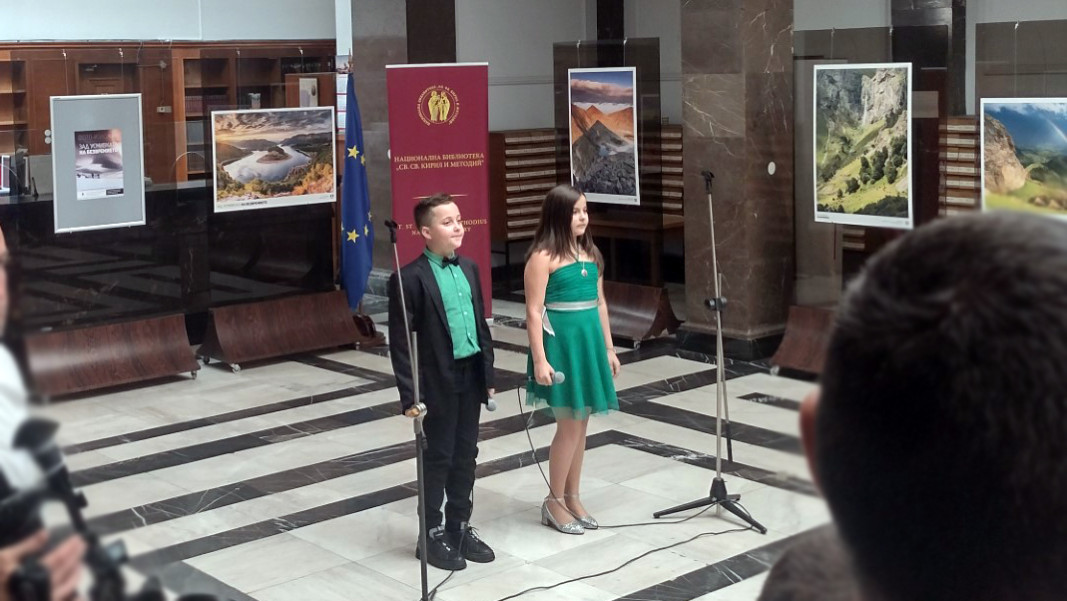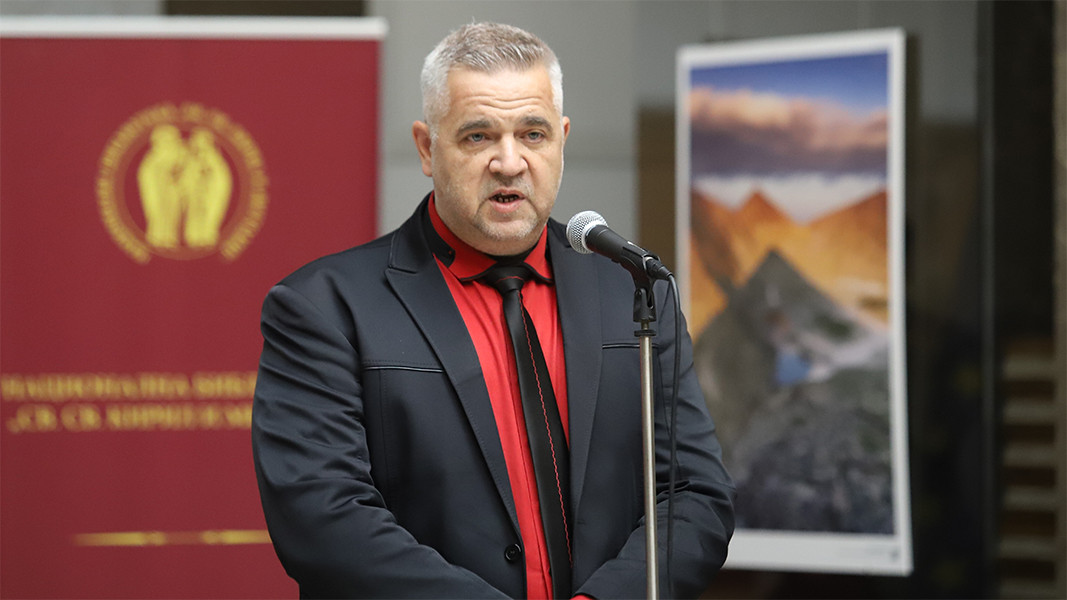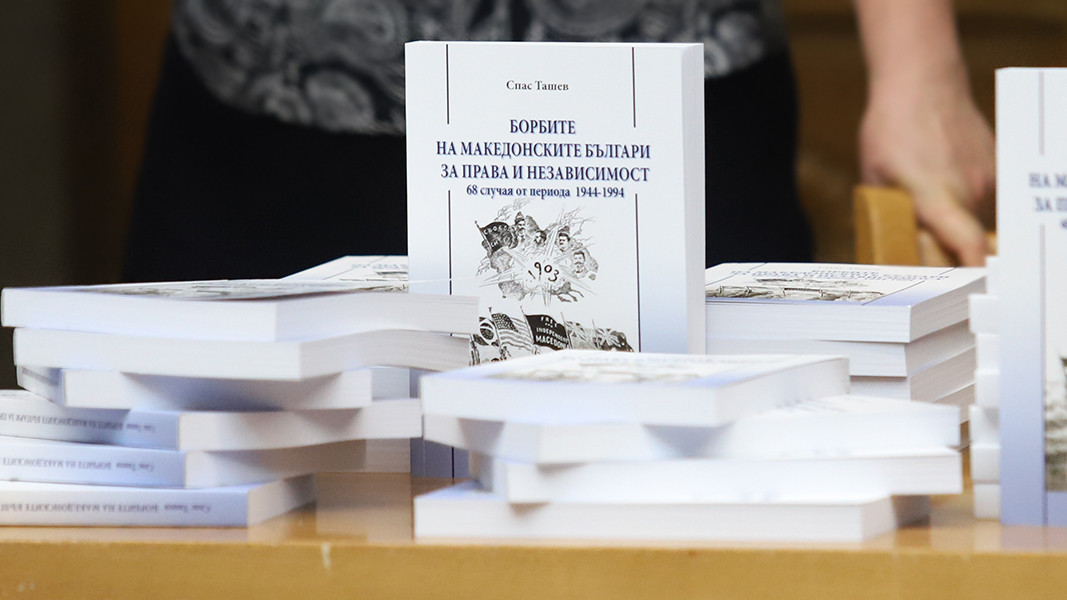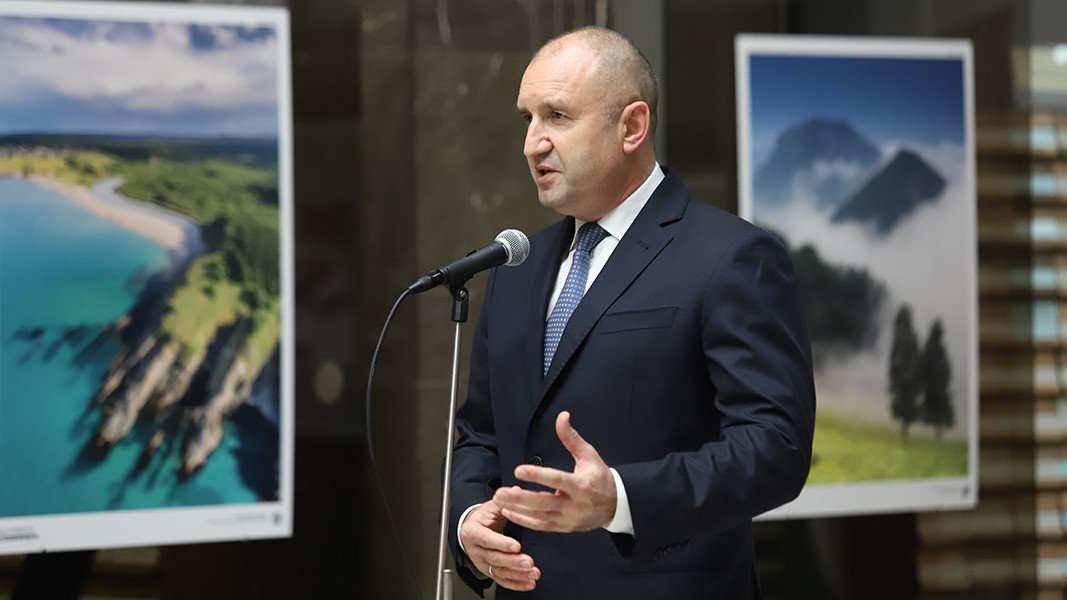Recently, in the National Library "Sts. Cyril and Methodius" the book of Associate Professor Dr. Spas Tashev - "The Struggle of Macedonian Bulgarians for Rights and Independence - 68 Cases from the Period 1944 - 1994" has been officially presented. The largest space in the temple of Bulgarian literature, the reference and catalog hall, was full of audience consisting of politicians, diplomats, academic researchers, Macedonian Bulgarians and journalists. Amidst the interior in Art Deco style, the spirit of the like-minded people who came was united already at the opening of the event with the hymn of the Macedonian struggles "Rise Dawn of Freedom". The author's children, twins Kiril Spasov and Iveta Spasova, ignited the souls and hearts of everyone with their inspiring performance.

As an expert in the parliamentary committee for Bulgarians abroad, Spas Tashev already in 2019 was acquainted with the framework position of the government and with the declaration of the National Assembly on the negotiations with North Macedonia for joining the EU. According to him, the biggest weakness of these documents is that they talk about a common history of the two countries only until 1944. In this way Bulgaria deprives itself of current events in the 20th century, when on the territory of today's North Macedonia many illegal organizations worked for the defense of the Bulgarian cause. The Macedonian-Bulgarian emigrants in the USA, Australia and Europe developed an active international policy to protect the rights of Bulgarians in Tito's Yugoslavia. In order to update the Bulgarian position, the researcher opens the suitcases full of literature that he brought from the USA in the 1990s when he was a guest at the congresses of the Macedonian Patriotic Organizations - MPO. He read the entire course of their leading publication "Macedonian Tribune" from 1944 to 1994. He processed over 60,000 pages of standard text.

"It took me a year to read everything,” Spas Tashev says. “My wife and my children are here. I have had quite a few conflicts with them. They sometimes made fun of me because during holidays I went to my office, read and collected information. But this allowed me to create a complete picture of the processes that took place there. I mean the processes of repression. I mapped the information, in terms of repressions, in terms of the creation of the so-called ‘Macedonian language’, the creation of the so-called ‘Macedonian Church’, the reactions in the Macedonian-Bulgarian immigrant society to these processes, human rights, the cooperation with other emigrant organizations, mostly with Croats, with Montenegrins, also with Albanians, the activity of emigrants around the world".
Collected material for the future book was published as installments every week, for a year and a half, as a series in the "Trud" newspaper under the heading "Unknown New Struggles of Macedonia". It was republished in the Skopje written norm on the Tribuna.mk website and received a wide response in North Macedonia.
At the presentation of the book, President Rumen Radev said that it was the missing link in the argumentation of the Bulgarian national position regarding the European integration of North Macedonia. It raises the question of the Bulgarians in Macedonia, their situation and their rights. "The topic did not exist for Bulgarian foreign policy until 2019," he pointed out and added:

"Something very important, it was this position that laid the foundations of the European solution found during the French presidency - the creation of the negotiation framework for the Republic of North Macedonia. But I want to say something even more important, because when we at the highest level of the state began to publicly and persistently raise this question, our compatriots began to raise this question themselves. They started looking for support from the Bulgarian institutions and I soon welcomed them that same year. Even some media wrote it as an unprecedented meeting in the presidential institution, although I admit it was late; but the important thing is that we initiated it and started it.”
President Radev also pointed out that Bulgaria has not set any new conditions for Skopje's negotiations with the EU. Sofia only wants to fulfill the already undertaken commitments, part of the EU's negotiating framework, which very clearly describes what needs to be done.

"We cannot build good neighborliness and a sustainable European future with the language of hatred, with falsifications and insults towards Bulgarians in textbooks, with the lack of disclosure of the archives of the services about the pogroms against the Bulgarians in Macedonia and the lack of rehabilitation for the innocent victims, with ongoing discrimination towards citizens with Bulgarian self-awareness. It is Bulgaria's duty to continue working with all European institutions, with the Bulgarian community in North Macedonia, with the institutions in Skopje, with the entire Macedonian society for the European integration of our neighbors. Sofia wants North Macedonia to be a Member of the EU as soon as possible because of the fact that we have been united by common history, culture and traditions for 13 centuries and we have a common European future," the head of state said in his speech.
English: Al. Markov
Photos: BGNES, Ivo Ivanov
Archaeologists have explored a necropolis in the Kavatsi area near Sozopol. The perimeter in which it is located is part of the history of Apollonia Pontica and is dated to the 4th century BC. "This is a site with interesting burials in which a nuance..
On November 10, 1989, at a plenum of the Central Committee of the Bulgarian Communist Party, Todor Zhivkov was removed from the position of General Secretary - the highest position in the party and the state. What happened at the..
Archaeologists have discovered a very rare and valuable glass bottle in a 2nd-century tomb in the southern necropolis of the Roman colony Deultum near the village of Debelt (Southeastern Bulgaria). What makes it unique is that it depicts the myth of..
In anticipation of the Nativity of Christ, the Orthodox Church opens its doors for today's divine services, heralding the fulfillment of the mystery of..
The first modern Christmas was celebrated in Bulgaria in 1879. It followed a European model with a Christmas tree, ice skating and gifts. At that..
His Holiness Daniil, Patriarch of Bulgaria and Metropolitan of Sofia, addressed the Orthodox Christians on the eve of the bright Nativity of Christ..

+359 2 9336 661
